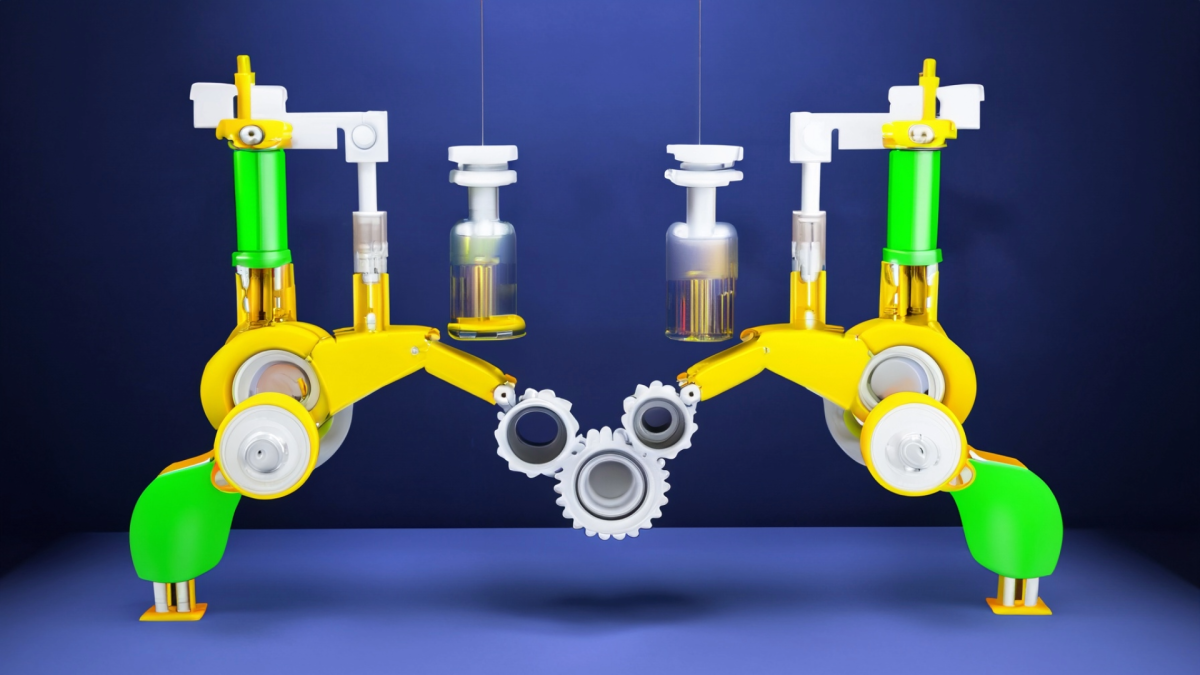Grades:
8th Grade
In this lesson students analyze the relationship between rainfall and tree growth from a sample. They will then graphically model that relationship. This is the 4th lesson in a series of 4. Links to
Grades:
7th Grade, 8th Grade
Students will learn how to bring their images to life by coding movement and will use math skills.
Grades:
3rd Grade, 4th Grade
This is lesson 4 out of a unit of 4 lessons about habitats. In the proceeding lessons, students researched habitats and animal adaptations. This lesson is a presentation of information using a variety
Featured
Messin' with Mixtures
Grades:
6th Grade, 7th Grade, 8th Grade
In this lesson, students will investigate the properties of a mixture, as if it were a contaminated soil sample near a stream. This activity will show students that heterogeneous mixtures can be
Grades:
5th Grade
This hands-on lesson covers balanced and unbalanced forces. Students use the skills they have already been taught to apply them to a real-world situation involving rockets. You will need 500mL bottles
Featured
Not a Stick!
Grades:
Kindergarten
Students will participate in an engineering challenge or STEM activity that connects to a read aloud. They will be able to ask questions, make observations, and gather information about a situation
Grades:
6th Grade, 7th Grade, 8th Grade, 9th Grade
This lesson is part of a school-wide project to renovate a greenhouse and create a native seed library. This lesson is intended to create intrinsic motivation to engage in the project. This lesson
Grades:
3rd Grade
Students will describe the role of pollinators and explain their effects. They will be able to identify how the life cycle of a plant and a pollinator are connected. Students will also get to explore
Grades:
4th Grade, 5th Grade, 6th Grade, 7th Grade, 8th Grade
Students become engineers and create a modified adaptive device after disassembling and assembling eyewear and creating a new adaptive device in this engaging lesson. This real-world problem-solving
Grades:
5th Grade
In this lesson, students will create a model of the solar system by shrinking the dimensions of the distances. Students will read an informational text about the features of the planets and view a
Grades:
7th Grade
Students in this lesson will be recording weather data for the city that each student has chosen for 2-3 weeks. Students will be able to record and analyze weather patterns for a selected city
Grades:
6th Grade
Students explore the limiting factors of yeast over 2-3 days. The materials needed are yeast, sugar, water, ice, tea kettle, empty soda or water bottles, balloons, graduated cylinder, string, ruler
Grades:
Kindergarten, 1st Grade
In this fun lesson, students will develop a simple sketch and a physical model of a float to illustrate how the shape of an object helps it function as needed to solve a given problem. They will then
Grades:
3rd Grade, 4th Grade, 5th Grade, 6th Grade
Students discover kite-making in this hands-on lesson! They create a kite with a variety of materials and test out the final product. This lesson can be adapted to fit different grade levels.
Grades:
7th Grade
In this lesson students will discuss how contact forces cause energy to be transferred and objects to move. They will learn that sound waves involve contact forces. Students will consider how contact
Grades:
6th Grade
Understand and implement the steps of the Design Thinking Process. Students will also be using their knowledge of energy to design a balloon-powered car that travels the farthest.
Grades:
7th Grade
This is Task 1 (Lesson 1) of four tasks (lessons) of an overall project of “Escaping 7th Grade Science Room.” Students will be constructing a mini zip-line after reviewing concepts. Students will
Grades:
5th Grade
After watching a video of the space station, students will design and build a model space station containing certain requirements. Students will use scale in order to create a blue print and then
Grades:
7th Grade
This lesson is designed to explicitly teach ideas about the nature of science. It contains no specific scientific content knowledge. This means that students can learn about the nature of science
Grades:
5th Grade
In this fun lesson, students create models of the Earth, sun, moon, and planets that can go on robots. They experiment with light and movement to demonstrate the rotation of sun, earth, and moon using
Grades:
3rd Grade, 4th Grade
This lesson is 3 of 4 of a unit about habitats and animal adaptations. In this project, students will build a model of a habitat and an animal they created in lesson 2. The animal will need to have
Grades:
6th Grade, 7th Grade, 8th Grade
Environmental Masters of Disaster Team (groups of 3-5 students) will choose an man-made environmental disaster, analyze its effects, then engineer a method or prototype to solve the problem.
Grades:
7th Grade
This is Task 2 (Lesson 2) of four tasks (lessons) of an overall project of “Escaping 7th Grade Science Room.” Students will be constructing Pangea with their group after reviewing the concepts.
Grades:
8th Grade
In this lesson, students will explore how biomes differ in different parts of the globe. They will identify differences between biomes and collaborate with peers to gather environmental science data
Featured Lesson Plans
Check out these notable lesson plans.

Featured
Pumpkin Jack Part One
Grades:
4th Grade
This lesson includes fourth grade reading, writing, math, science, and engineering standards. The potential is endless with additional enrichment activities. Students participate in the nurturing and

Featured
Simple Machines Save the Day
Grades:
5th Grade
In this lesson students read about simple machines and learn that simple machines make it easier to lift or move things and that they can change direction and magnitude of force. Students use LEGOs to

Grades:
6th Grade
Students are tasked with using the Engineering Design Process to create a system of harvesting rainwater to meet the needs of residents in communities that have a scarce water supply (shortage of


